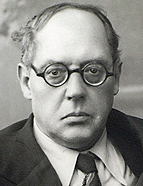

In the early 1930s, he became close to the Estado Novo, attracted by the figure of Salazar, with whom he corresponded frequently until the end of his life; However, Salazar’s failure to resolve the “problem of the regime” (i.e., the return to a monarchical regime) led him to adopt a somewhat disenchanted political stance and, coincidentally, it was from this point, already in his fifties, that he began to publish his first significant historiographical works, mainly focused on medieval history. Of particular note are Estudos filosóficos e críticos (1930), Vínculos portugueses (1932), Elementos de História de Portugal (1934, a proposed textbook for secondary school education with several editions in subsequent years), and the first series of Estudos históricos – historical review library (a total of 25, published between 1936 and 1949), but also Subsídios para a História de Portugal – textos e juízos críticos (1937) and, later, Idade Média (1946) and Fontes medievais da História de Portugal (1948).
Although these works are distinct in type and scope, it is possible to discern common methodological lines in all of them – a concern with a certain scientific rigour in historiographical analysis and with the validation of sources – as well as an apologetic dimension that can be framed within traditionalist historiography. A supporter of the objective historical process, as opposed to what he considered the subjectivity of liberal and republican historians (and essayists such as António Sérgio), Alfredo Pimenta reaffirms this on several occasions: “History is only scientific when it enumerates facts in the manner of medieval chronicles [...]; whenever it moves into the realm of synthesis, whether of reconstruction or explanation, History moves into the realm of the subjective, of the self, and therefore of the unscientific.” (Novos estudos filosóficos e críticos [New philosophical and critical studies], 1935, p. 74); “History is nothing more than the arid, bare document, in its absolute impassivity” (Idem, p. 471). The work of the historian must be a “cold work of laboratory dissection [...]” (Idem, p. 108).
This work is financed by national funds through FCT - Foundation for Science and Technology, I.P, in the scope of the projects UIDB/04311/2020 and UIDP/04311/2020.
